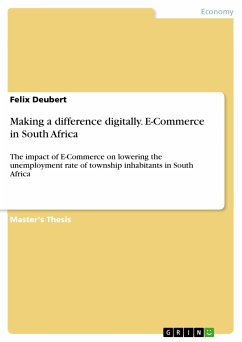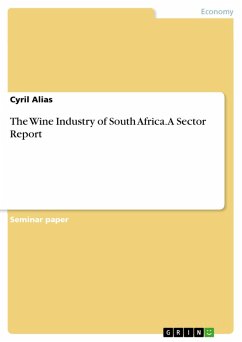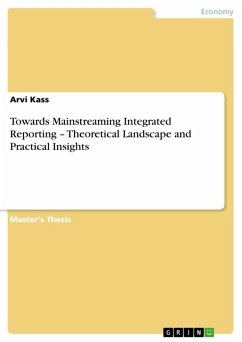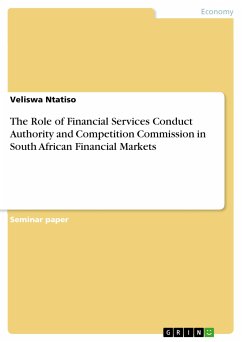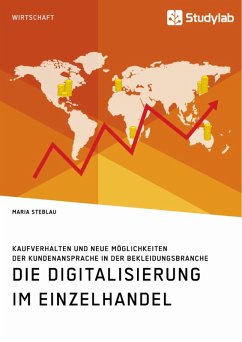Master's Thesis from the year 2014 in the subject Business economics - Trade and Distribution, grade: 1,3, University Witten/Herdecke, language: English, abstract: According to the "South African B2C E-Commerce Report 2012", South Africa was already in 2011 the fifth largest country in Africa in terms of the number of Internet users. Today in 2014, there are approximately 12,5 million South African Internet users . Since several years, the E-Commerce sector is facing a boom in South Africa. However, not everybody seems to profit from or participate in this boom. Economically and socially, South Africa is still deeply divided. The inequality within the population, the distance between rich and poor is extreme: The richest 20 percent of the population account for almost 70 percent of total income, the share of the poorest 20 percent is just under three percent. Almost a third (31.9%) of the population lives on the equivalent of less than 2 Dollars a day . Around seven million people are considered long-term unemployed with no job prospects, especially those living in informal settlements, the so-called "townships". The social and economic inequality is a big problem for the country of South Africa. E-Commerce has the potential to resolve this problem, as it is booming and companies plan to extend their businesses as well as their employee numbers. The idea is to train people from the townships in order to get them to work in the E-Commerce business. Interesting for this thesis are those E-Commerce companies with big storage halls, as they are the ones who might be in need of untrained employees of the townships. Jobs could be needed in basic positions such as picking and packing, quality control and customer services in big warehouses. Supposed it would be actually possible to use training initiatives and programs in the form of cooperations of E-Commerce companies and township NGO¿s, resulting in dimishing unemployment and leading to permitting more people participate in the boom of E-Commerce, the South African economy and its society as a whole would gain a tremendous benefit. The research question in this master thesis is interlinking the existing economic boom of E-Commerce with the high unemployment rate in the townships: Does the fast-growing E-Commerce in South Africa have an effect on the high unemployment rate in the townships? In the quest for an answer to this question, attention is paid to two related questions as well: Do the lowest social classes feel an improvement in their living standards after being hired by an E-Commerce business?
Dieser Download kann aus rechtlichen Gründen nur mit Rechnungsadresse in A, B, BG, CY, CZ, D, DK, EW, E, FIN, F, GR, HR, H, IRL, I, LT, L, LR, M, NL, PL, P, R, S, SLO, SK ausgeliefert werden.

